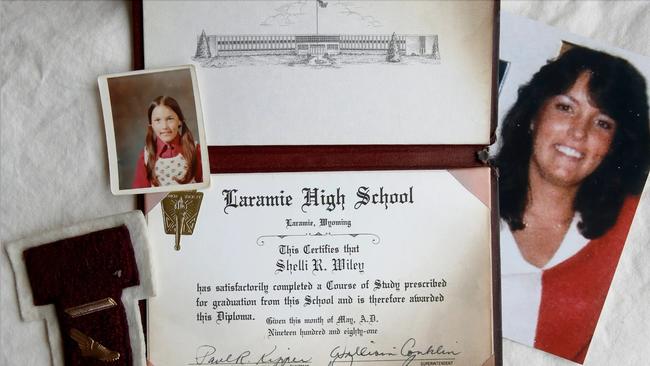Memoir meets murder in Serial Production’s latest series The Coldest Case in Laramie
The production house that delivered Serial – the true crime podcast that started the phenomenon – has released a new series that challenges audiences to accept ambiguity.

True crime is in part compelling as a genre because it delivers audiences the satisfaction of completeness. Chaos is vanquished, order is restored.
But is knowing always better than not knowing?
The production house that delivered Serial – the true crime podcast that started the phenomenon – has released a new series that challenges audiences to accept ambiguity.
The Coldest Case in Laramie opens with host New York Times journalist Kim Barker’s reflections on her hometown of Laramie in Wyoming, which she remembers as “uncommonly mean” and a “place of jagged edges and cold people”.
It’s more the opening of a memoir than a murder investigation but begins to make sense as the series unfolds.
Laramie is also where Shelli Wiley was murdered in 1985, the then 22-year-old stabbed before her apartment was set on fire.
Barker says Wiley’s death stuck her to Laramie and was “the defining cruelty” of the town where she was bullied for her name and clothes.
“She was 22, white, a pretty brunette, living a version of the life me and my friends imagined for ourselves one day,” says Barker.
The case went cold but in 2016 former police officer Frederick Lamb was charged with Wiley’s murder before the charges were dropped.
Curious, but this isn’t a story about the boys in blue protecting their own. No spoilers but listeners be warned the story is not a whodunit. There’s no denouement in the drawing room or satisfying conclusions.

It’s unsurprising Barker decided to pursue the story while burned out from the pandemic. At times it feels like Barker is labouring through a fugue state in her hometown.
Memory can’t be trusted, witnesses are wrong and the only solid fact is that we don’t know who killed Wiley.
The podcast explores what happens when we force resolution over accepting ambiguity. Do we create lies in the making of fast conclusions? Is it better to endure the unknown?
The result is a podcast that is more existential than entertaining.
Only a production house with Serial and the New York Times’ brand power could push the envelope this far.
Barker’s narration is at times lyrical and she makes a thoughtful and serious guide as she gains access to police files and recordings and interviews former roommates.
The Pulitzer Prize winner’s investigative ability is outstanding but she doesn’t crack the case and instead merely demonstrates the fallibility of memory.
There are moments when key characters realise they were wrong and listeners can almost hear their minds changing on the tape. It’s riveting but it doesn’t crack the case.
Barker does uncover some police incompetence as well as elements of racism and sexism in the original investigation but it’s unclear if any of it amounted to a perversion of justice.
Part of the charm of the Serial podcasts (S-Town, The Trojan Horse Affair, Nice White Parents) is the doubt and vulnerability shown by the hosts as they muddle through facts, clues and theories and grapple for truth and clarity.
It’s as if they are channelling Helen Garner but in audio.
Maybe doubt is addictive. We keep going because we need to know. What happens when we give up?
Review recommends for patient listeners.




To join the conversation, please log in. Don't have an account? Register
Join the conversation, you are commenting as Logout